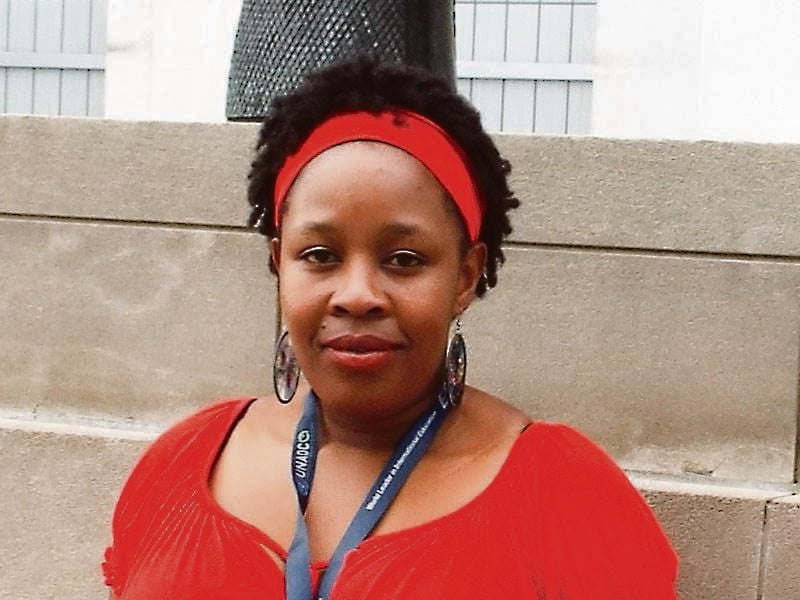
‘Your virginity is like a bulb. Once it’s broken, it can never be put back together again. But the girl who stays a virgin until she meets her husband will be treasured and respected,” is what my teacher would say during our Life Skills classes while making a violent arm motion and a smashing sound to emphasise “broken”.
This, along with a visit from an obviously sick woman who was paraded before us to show us why we should fear HIV/Aids, comprised most of my sex education in the late 1990s and early 2000s.
The only time contraception was ever mentioned at school was when congregation members from a local church came to run a HIV/Aids awareness session, where they told us that condoms had holes in them through which “the virus” could pass. Using a condom was not enough, they said; the only way to avoid getting the virus was to abstain from sex.
The main takeaways my classmates and I gleaned from these lessons included the following: For girls, sex is something a man does to you; a girl’s worth is determined by whether or not she has sex in or out of wedlock; vaginal, heterosexual sex is the only way; and having sex causes HIV/Aids, which is followed by death.
As an adult, I recognise just how harmful my Life Skills education was as it reinforced many stigmas and left me and my peers with no knowledge about what constitutes safe sex or even healthy sexual encounters.
Read: Book Extract: There's more to sex than 'yes' or 'no'
These inaccurate and distorted messages of my youth came to mind recently when I heard about protests to the introduction of a Comprehensive Sexuality Education (CSE) curriculum for pupils in grades 4 to 12. First there was an uproar from parents, then the African Christian Democratic Party began protesting. A dubious organisation called Freedom of Religion SA has also claimed CSE has a “sinister agenda, namely the radical sexualisation of children ... sexual responses towards animals, minors, non-consenting persons, etc”.
The reality, however, is that just like when I was young, many adolescents today are having sex and experimenting with other forms of sexual behaviour regardless of the abstinence lessons they are taught in school. The South African national survey on HIV has consistently found that learners are having sex, with some indicating that their first sexual encounter happened before they were 14 years old.
An analysis of the sexual and reproductive health needs of young adolescents in developing countries found that “while most very young adolescents report that they have never experienced sexual intercourse, some have begun to explore intimate relationships and to engage in noncoital sexual activities, such as kissing, hugging, fondling, and oral and anal sex”. But many of them may not know how to be safe about it. Take, for instance, the story of a girl, who did not know that she could fall pregnant at the age of 15.
Those who receive “sex education” like mine will not know the risks that come with some of these activities or how to protect themselves when engaged in them. This is precisely why high-quality CSE is essential and should be supported by all. The evidence is clear – when done well, CSE leads to a significant delay in initiation of sex, increase in condom use and improved attitudes related to the right to refuse sex. CSE aims to treat single-parent families, masturbation, gender nonconformity and consent as mainstream. This is critical considering that a study conducted among young adolescents in Mpumalanga found that “comprehensive sexuality education is responsive to this age group’s needs, draws on their everyday lived experiences and optimises the opportunities offered by foregrounding agency, while remaining cognisant of structural constraints”.
For learners who may experience or witness sexual violence, CSE can help as it addresses consent and helps learners identify when sexual violence is happening – both to themselves and to others.
Since research shows that the best way to protect learners is by teaching them healthy, informed decision-making about their bodies and their sex lives, if the parents and groups that are currently protesting against CSE succeed, they would prevent learners from receiving information that can keep themselves and others safe. And while some claim that sex education is the responsibility of parents, the reaction of some parents to news of CSE being introduced shows that they themselves lack the factual information needed to adequately do this.
It’s clear that South African children and adolescents need to learn about consent, bodily autonomy and have medically accurate information to make informed and safe choices about responsible sexual activity, their sexual reproductive health and healthy relationships. If we want them to be knowledgeable and safe, this is the way to achieve that goal.
Moeti has a long background in civic activism and has worked at the intersection of governance, communication and citizen action. She’s an Atlantic fellow for racial equity; one of the inaugural Obama Foundation fellows and is an Aspen New Voices senior fellow. Follow her on Twitter at @Kmoeti




 Publications
Publications
 Partners
Partners








